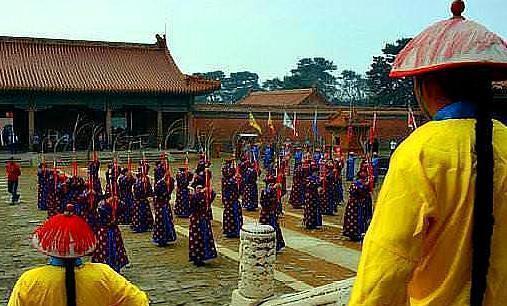The Qing Dynasty has been dead for 107 years, why are there still people guarding the imperial tomb? Does the state pay them?
Everyone should have seen the word tomb keeper in TV dramas or literary works, in fact, the tomb keeper is also real, every time the royal family will carefully select those people, they will choose feng shui treasure land when choosing a location for the imperial tomb, after all, this may be related to the fate of the country.

In fact, the tomb keeper also has a duty to guard the exquisite funerary goods in the imperial tomb, China has experienced generations of government, the imperial tombs of the Qing Dynasty have also been stolen in modern times, and Sun Dianying, who is known as the Great Thief of Tanglin, once blew up the tombs of Cixi and Qianlong, so the Nationalist government at that time was asked to send people to take good care of the imperial tombs.
However, the situation at that time was very turbulent, and who would have any mind to care about those who were buried in the ground, the Kuomintang could only spend money to find some people to guard, and this practice did not have any effect at all. The important responsibility of guarding the imperial tomb still has to be done by the tomb keepers who stayed before, and the imperial tombs of the Qing Dynasty are scattered in different places, they are not concentrated, the first place is Yongling and Fuling and Zhaoling, which they built before entering the customs.
These three imperial tombs belong to the ancestors of Nurhaci and Nurhaci and Huang Taiji, each of them has its own funerary tomb, and the imperial tombs built by the Qing army after entering the customs are located in Tangshan and Baoding in Hebei, these two places are the Qing Dongling Tomb and the Qing Xi Mausoleum. Qianlong, Shunzhi, Kangxi, Xianfeng, Tongzhi, Cixi and the Empress were all buried in the Qing Tombs, where there are a total of fifteen mausoleums. Yongzheng, Jiaqing, Daoguang, and Guangxu were buried in the Qingxi Mausoleum, as well as some royal family members, and there are a total of fourteen mausoleums here.
When the Qing Dynasty was not yet destroyed, the Qing government would send special people to guard the three mausoleums of the QingXi Mausoleum, the Qing Dongling Tomb and the Shengjing Tomb, and also set up a special institution to undertake the affairs of the Yamen, management and protection are two separate institutions, they are not only responsible for some daily work, but also to keep these imperial tombs in a safe state, the position of the tomb keeper needs a family to continue, if the father dies, the son must continue the profession instead of the father. Of course, if there are other sons in the family, they can go to the palace to become officials.
Many villages are around the imperial tomb, they will live here, farming, after the fall of the Qing Dynasty, many people are not willing to leave this place where they have lived for a long time, so they will pay for themselves, or guard the imperial tomb here, in fact, they are some ordinary people, everything they do for the imperial tomb is voluntary, they will not have a salary. These imperial tombs became the cultural heritage of our country after the founding of New China, and these tomb keepers have had their own salaries since then.